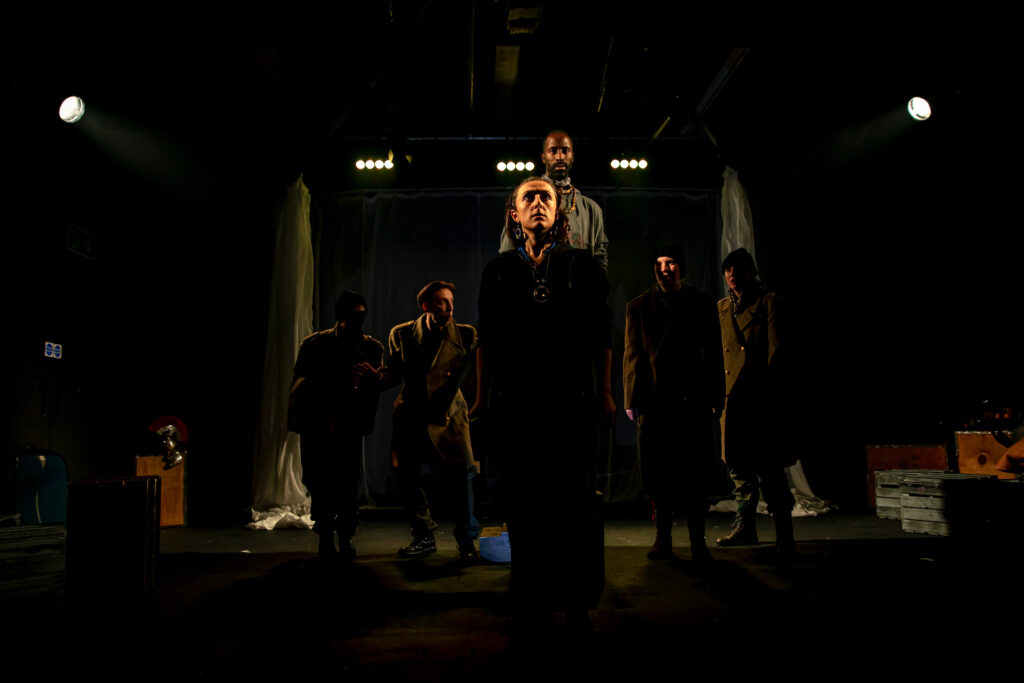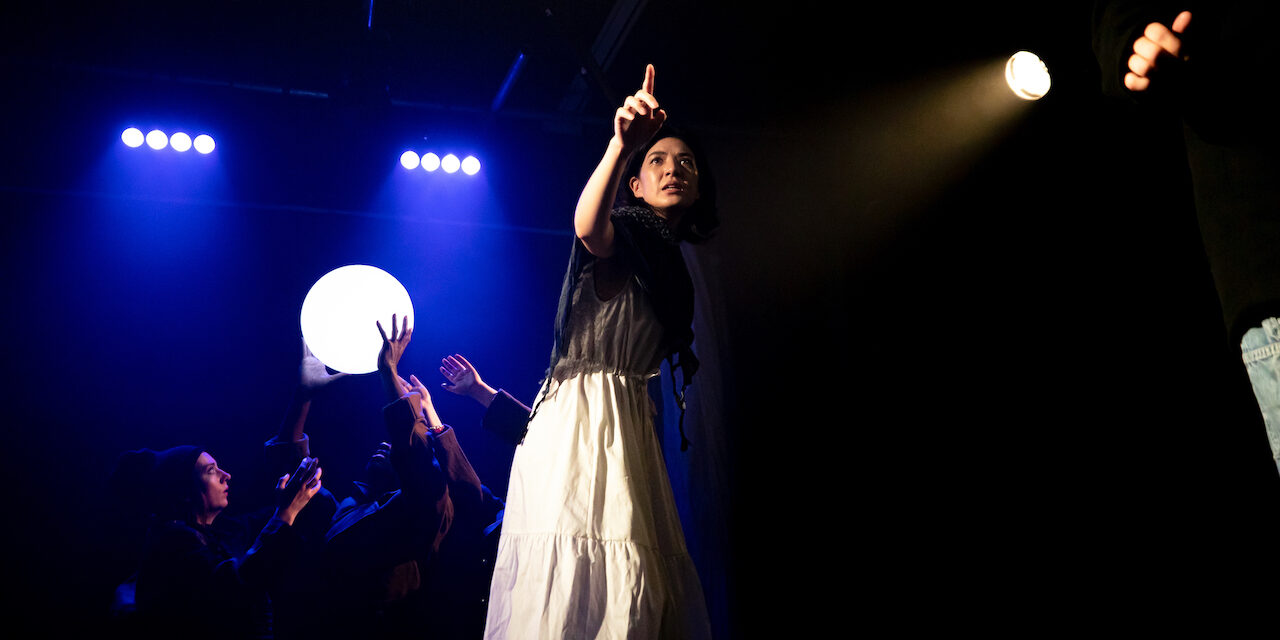
23 and 25 March
This retelling of the Trojan War through the perspective of the prophetess Cassandra by Lesia Ukrainka was first published in 1908 and has been recently translated by Nina Murray. It received the 2021 Ukrainian Institute’s Literature in translation prize and has now been brought to the stage by Live Canon.
Ukrainka (1871-1913) was one of her country’s foremost poets, a well-known feminist, civil and political activist. A year before Cassandra’s publication she was interrogated by the czarist police and the experience of oppression, the longing for freedom and independence ring out through this powerful story.
The complex, richly populated narrative commences several years into the Trojan war. And the palpable sense of war’s devastating effect on both male combatants and the women they have left behind has a deep resonance today. Yet the focus on Cassandra herself carries inevitable difficulties in a staged version of the dramatic poem. The Trojan princess has been doomed to see the future yet doomed never to be believed. As her prophecies come true, her family blame her for each successive catastrophe. To that extent she is a perpetual victim. And though there are moments when Cassandra struggles against her fate, there is nothing she can do to escape it.
Thus, despite a powerful sense of the horror of war and its effect on the women in particular, it is as if we are witnessing events from afar. Evie Florence brings sensitivity to the central role, but she is surrounded by larger presences and stronger voices. To that extent it is difficult to engage with her experience. This is not helped by the volume of the atmospheric sound effects which occasionally drowns the words of her prophecies.
The director is Helen Eastman and the action is cleverly imagined around a ramshackle set of tea chests, boxes and tables, designed by Neil Irish. This serves to conjure not only the fringe of the battlefield but also the ramparts and palace ante rooms. Here, Cassandra presents as the awkward child in her unappealing rough dungarees, teased and hounded by her more glamorous sisters, ably played by Abigail Rosser ( Andromache) and Mia Foo ( Polyxena).
As in all Greek drama, the battles take place beyond the stage area but sound, light and movement are enough to suggest the carnage outside. And the theme of women’s sacrifice runs like a dark refrain throughout the drama, rising to a pitch in the scene in which Cassandra rejects the approaches of the Lydian King Onomaus. Actor Joseph Akubeze imports a touch of comedic arrogance as he sashays towards his would-be bride in a glittering white suit, a chilling contrast to the mud brown camouflage of the Trojan soldiers. In one her finest moments, Cassandra takes a stand and refuses to go with him. And while her decision is tainted by her knowledge that even if she had gone, she could not have saved her people, it nevertheless feels like a rare moment of agency in a drama that never quite touches the heart.
★★★☆☆ Ros Carne 24 March 2023
Photo credit: David Doyle


